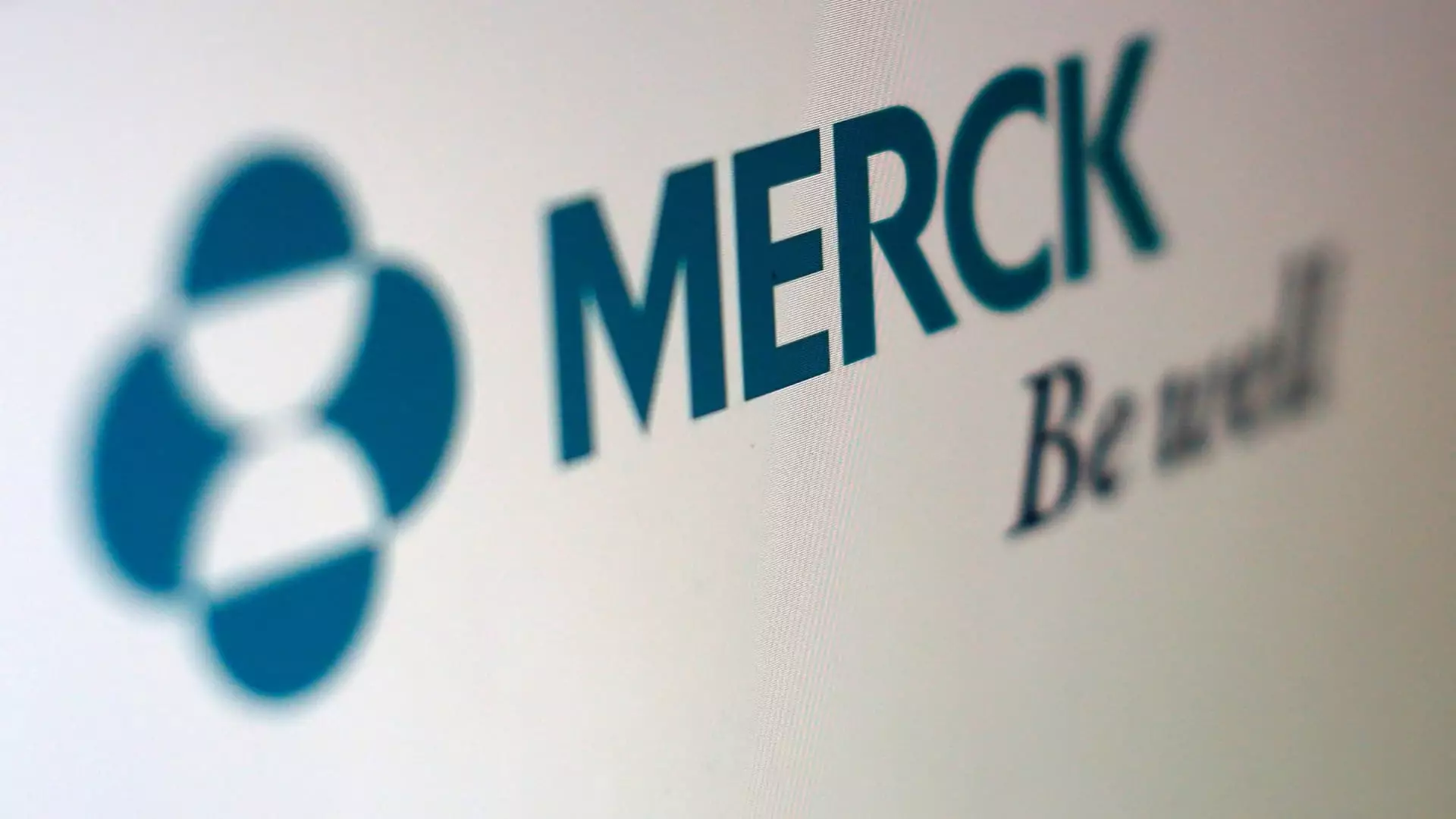The ongoing struggle against respiratory syncytial virus (RSV) has reached a pivotal moment with the FDA’s recent approval of Merck’s groundbreaking monoclonal antibody, Enflonsia. As the virus wreaks havoc particularly on infants and older adults, the urgent need for effective preventative measures could not be more pronounced. Each year, RSV leads to thousands of hospitalizations and fatalities, making it one of the most pressing public health challenges we face. The introduction of Enflonsia sends a vital message: innovation remains key in our fight against pervasive viral threats. However, as we embrace this newfound weapon, a careful examination of the implications for healthcare accessibility and competition is essential.
Merck’s Timely Launch: A New Hope for Infants
Merck’s Enflonsia, positioned to launch before the upcoming RSV season, arrives as a beacon of hope for concerned parents and caregivers. The potential to reduce RSV-related hospitalizations by an impressive 84% is nothing short of remarkable. With this treatment, infants become less vulnerable to complications that can lead to severe respiratory issues, which are alarmingly common in the months when RSV peaks. Unlike competing treatments such as Sanofi and AstraZeneca’s Beyfortus, Merck’s drug can be administered regardless of an infant’s weight, simplifying logistics and enhancing accessibility. Parents need not navigate the complexities of dosing based on body weight, which can often create anxiety during already stressful times.
Competition Brews: A Double-Edged Sword
While competition can spur innovation, it also raises pertinent concerns about equitable healthcare access. The healthcare landscape is witnessing a clash of titans as Merck’s Enflonsia comes face-to-face with the already established Beyfortus, which faced severe supply shortages last season. The aggressive strategy from Sanofi to ramp up production reveals the intense pressure on pharmaceutical companies to meet unprecedented demand — a landscape where profits can sometimes overshadow public health considerations. This competition suggests a dual narrative: exciting advancements for medical science but a troubling reality where availability may not match the urgency of need.
Moreover, with Merck’s drug positioning itself to be the more convenient option, it begs the question of how hospitals and healthcare providers will prioritize these alternatives in resource-strapped environments. Will smaller health systems be able to procure enough doses of these new treatments to meet patient needs? Equitable healthcare should not become collateral damage in a race toward market dominance.
A Broader Perspective on Vaccine Research
As if the pressures of introducing novel treatments weren’t enough, the FDA’s pause on RSV vaccine trials for young children signals that the road ahead will not be smooth. The regulatory scrutiny underscores the delicate balance between innovation and safety. The ongoing evaluations create a sense of uncertainty in a field that urgently needs accessible solutions for the youngest and most vulnerable populations.
It’s critical to question whether the robust commercial interests driving development can maintain a focus on rigorous safety assessments. The dilemma exposes a systemic issue within pharmaceutical innovation: as companies rush to be the first to market, are we compromising the thorough evaluation that should underlie all new therapies? The scientific community remains poised to adapt; the stakes are too high for the focus to shift from patient safety to competitive advantage.
Looking Forward: Hope Amidst Uncertainty
As we celebrate the approval of Enflonsia, we’d be remiss to overlook the necessity of systemic reforms that facilitate equitable access to such critical treatments. It is a time for reflection, urging policymakers, healthcare professionals, and pharmaceutical companies alike to come together for the public good. The challenge posed by RSV highlights the fragility of our healthcare systems while revealing the vital importance of high-quality, accessible treatments.
Moving forward, as global health is increasingly interconnected, we must strive for a paradigm where innovation is not only embraced but also tempered with an unwavering commitment to equitable healthcare for all. The next RSV season looms, and while Enflonsia stands as a testament to progress, it is our collective duty to ensure that breakthroughs benefit every child, not just those fortunate enough to navigate the complexities of healthcare successfully.

